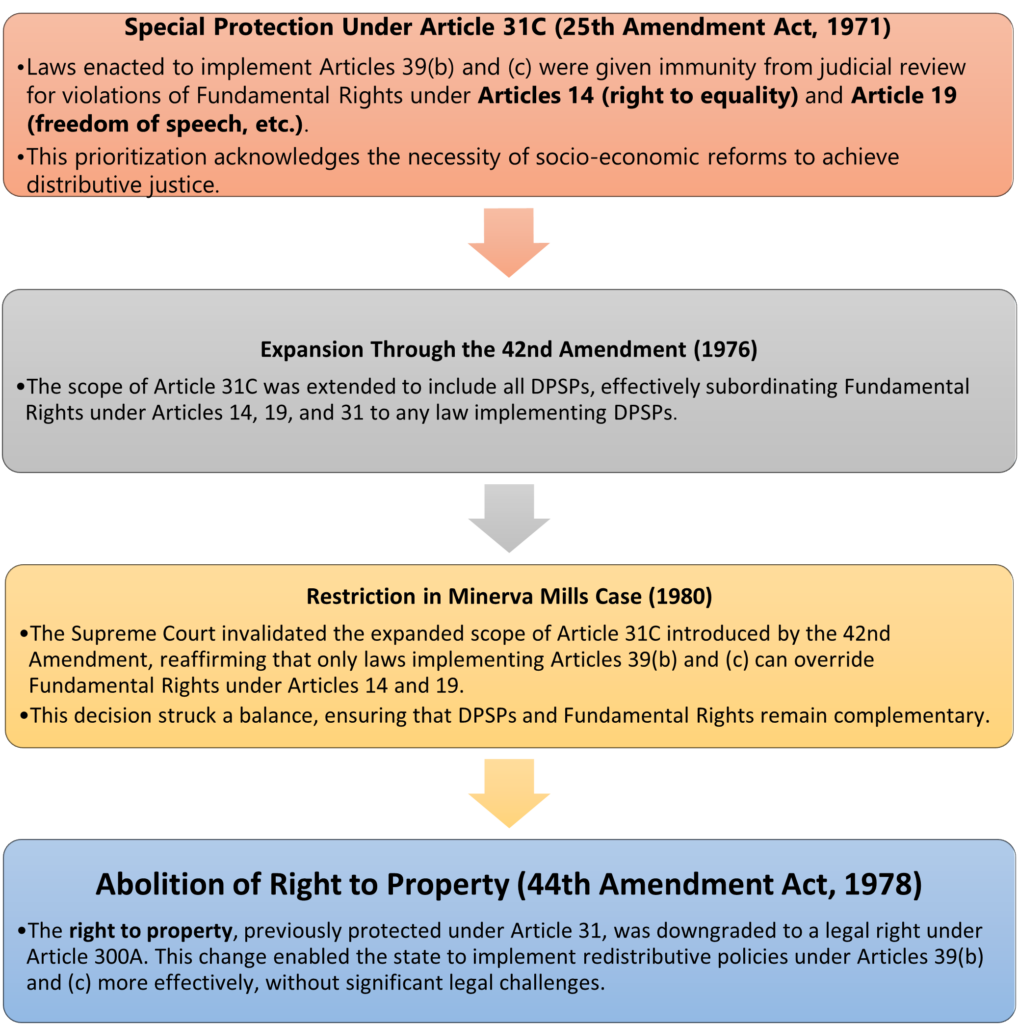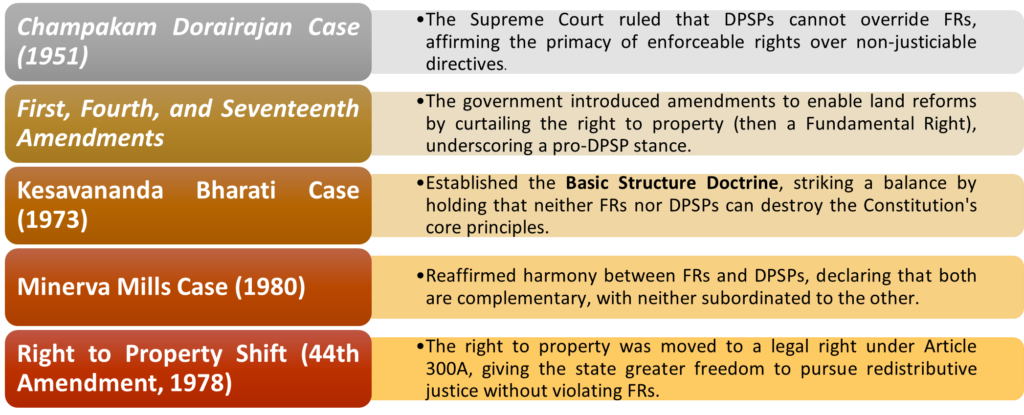(General Studies II – Polity section – Indian Constitution—Historical Underpinnings, Evolution, Features, Amendments, Significant Provisions and Basic Structure.)
- The Supreme Court’s recent nine-judge bench verdict on Article 39(b) of the Indian Constitution marks a pivotal moment in the interpretation of the Directive Principles of State Policy (DPSP).
- This decision addresses the extent to which the state can intervene in the distribution of private resources to serve the common good, balancing socialist ideals with individual property rights.
| Articles 39(b) and 39(c) |
Articles 39(b) and 39(c), part of the Directive Principles of State Policy (DPSPs), hold a special status within the constitutional framework due to their emphasis on socio-economic justice. These provisions direct the state to:
- 39(b): Ensure equitable distribution of material resources to serve the common good.
- 39(c): Prevent the concentration of wealth and means of production to the detriment of society.
| The Supreme Court’s Verdict on Article 39(b) |
The recent judgment refines the interpretation of DPSPs, particularly Article 39(b), which mandates the state to distribute “material resources of the community” for the common good.
- Majority View
- Not all private resources fall under “material resources of the community.” The Court emphasized evaluating state action based on the:
- Nature and characteristics of the resource.
- Necessity of acquisition for community welfare.
- Scarcity of the resource.
- Impact of private concentration.
- Example: Land acquisition, governed by the principle of eminent domain, must demonstrate clear public interest to justify state intervention.
- Not all private resources fall under “material resources of the community.” The Court emphasized evaluating state action based on the:
- Dissenting Opinion
- Justice Sudhanshu Dhulia highlighted societal inequalities and advocated leaving the interpretation of “material resources” to legislative wisdom, enabling broader state action to address socio-economic disparities.
| Evolution of Position on Articles 39(b) and 39(c) |

| Implications of the Recent Verdict for Policy and Governance |
- Economic Policy: The verdict underscores the need for a balanced approach, where state intervention in private property aligns with public interest and constitutional justification.
- Judicial Precedents: The nationalization of banks in 1969 was justified under DPSPs, while recent cases like the allocation of natural resources (Coal Block Allocation Case, 2014) demand fairness and transparency in processes.
- Legislative Actions: Laws redistributing private resources, such as land acquisition statutes, must adhere to the principles outlined by the Court to withstand judicial scrutiny.
| Directive Principles vs. Fundamental Rights in context of Right to Property |

| The interpretation of Articles 39(b) and (c) has evolved through judicial scrutiny and constitutional amendments, reflecting India’s socio-economic needs and constitutional ethos. While early conflicts between DPSPs and FRs highlighted judicial restraint, landmark rulings like Kesavananda Bharati and Minerva Mills established a balanced framework. The recent Supreme Court verdict reaffirms this balance, ensuring that socio-economic justice aligns with constitutional values without undermining individual rights. |

